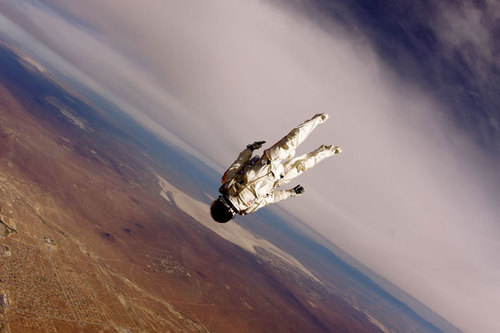Physics
Classical Mechanics
Level
2
 A person falls freely towards earth. If air friction is considered, then what happens to the total energy of this person?
A person falls freely towards earth. If air friction is considered, then what happens to the total energy of this person?
Decreases
First increases and then decreases
Remains constant
Increases
This section requires Javascript.
You are seeing this because something didn't load right. We suggest you, (a) try
refreshing the page, (b) enabling javascript if it is disabled on your browser and,
finally, (c)
loading the
non-javascript version of this page
. We're sorry about the hassle.
If a object falls due to friction it loss its energy, like moving a table in a hard(friction) surface. This is the reason that many asteroids entering earth losses its energy due to the friction by the air and finally disappears.